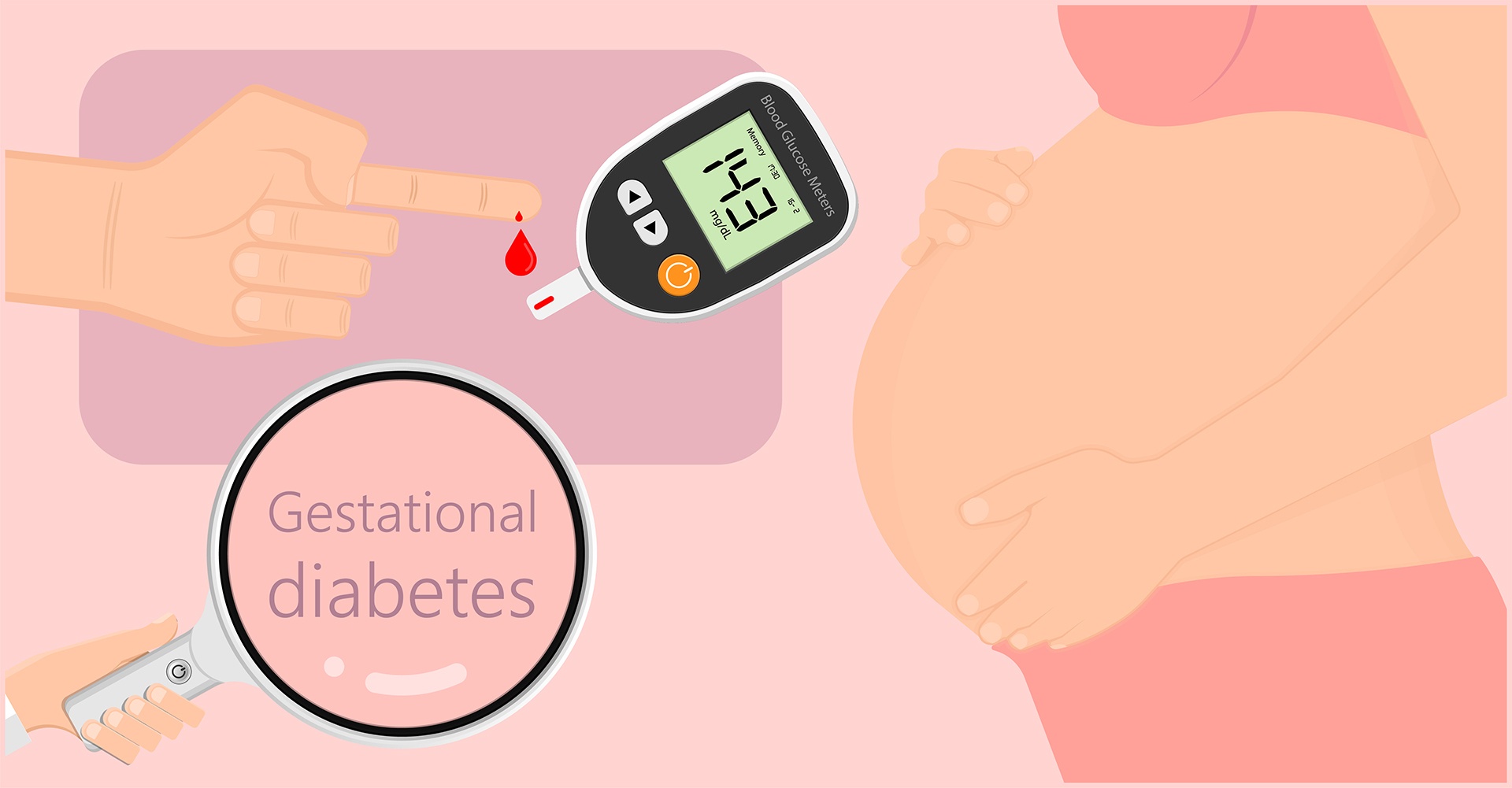
BGSU researcher working to prevent type 2 diabetes after gestational diabetes
Kerri Knippen looking at impact of nutritional therapy during pregnancy, working with dietitians to improve practices
Women who develop gestational diabetes are 10 times more likely to have type 2 diabetes later in life. But, according to a Bowling Green State University professor, it doesn’t have to be that way.
 Dr. Kerri Knippen, assistant professor in the Department of Public and Allied Health is taking on that challenge with her research. Her recent presentation at the American Diabetes Association 81st Scientific Session included both her own research and an overview of current clinical trials looking for interventions to prevent type 2 diabetes after gestational diabetes.
Dr. Kerri Knippen, assistant professor in the Department of Public and Allied Health is taking on that challenge with her research. Her recent presentation at the American Diabetes Association 81st Scientific Session included both her own research and an overview of current clinical trials looking for interventions to prevent type 2 diabetes after gestational diabetes.
During pregnancy, normal changes result in a mother’s increased resistance to insulin to provide the fetus with glucose. Sometimes, it can cause the mother’s glucose to increase as well, resulting in high blood sugar and gestational diabetes. Estimates are that this happens in 6% to 8% of all pregnancies.
“Women are often not told about how to reduce risk, or there isn’t enough follow up in the coordination of care,” Knippen said. “They might be seeing a diabetes educator during pregnancy that is overseen by their maternal fetal medicine provider or women’s health provider. But, after delivery, they will transfer back to their primary care provider and there may not be appropriate communication about the increased risk factors for type 2 diabetes. In fact, some of our research found that 47% of women with gestational diabetes did not have a health care provider discuss post-partum risk reduction. There are simple, low-cost things we can do to help them come back for regular screenings, and to coordinate referrals to resources to help them reduce their future risk.”
Gestational diabetes can increase lifelong risk
The onset of gestational diabetes occurs during the second or third trimester of pregnancy. Knippen said while many expectant mothers may present with risk factors such as family history of diabetes, age at the time of pregnancy and excess body weight, some patients don’t have any risk factors.
Having gestational diabetes can dramatically increase the lifelong risk of diabetes, but Knippen sees ways to prevent or at least delay the onset of type 2 diabetes in that population.
“Research demonstrates that we can prevent or delay type 2 diabetes after gestational diabetes,” she said. “Although women are going to have a life-long risk, there are health protective behaviors they can implement. Proper nutrition, maintaining a healthy body weight and increased physical activity are all things that have shown to be quite powerful in preventing type 2 diabetes.”
Programs for gestational diabetes can be inconsistent
Knippen said one of the difficulties with implementing relatively easy steps is that programs are not necessarily built around the patients who need them.
“My concern is that motherhood and life are complex,” she said. “For this population of women, we need to think about what other support and resources we need to provide within our communities, and how programs can be flexible enough to help them continue making lifestyle changes, but also manage returning to work and raising children. Diabetes prevention programs certainly can be successful for this population, but there are currently gaps in care and some challenges that are different from a middle age or older adult who might be at risk.”
Knippen: Women need more support
Knippen also is a registered dietitian, which is why she first became interested in the relationship between gestational and type 2 diabetes.
“I worked as a dietitian and diabetes educator in an endocrinologist office as well as with an obstetrician and would see women with gestational diabetes,” she said. “My clinical experience prompted my interest in this area of work. The problem after they are diagnosed is when they deliver the baby, their blood sugar may return to normal, but they are still at a high risk of developing type 2. I see it as a missed opportunity to provide women with more support to prevent type 2 diabetes.”
For now, her research will continue to explore how best to provide a continuum of care for this group of patients.
“We are looking at the impact of nutritional therapy during pregnancy, and working with dietitians to improve practices,” she said. “I am also working on developing a care plan where women are provided guidance, but also participate in shared decision-making, and help create goals to reduce the risk of type 2 diabetes. We have a care plan developed and are hoping to pilot it in a clinical setting later this year.”
Updated: 08/26/2021 12:09PM
